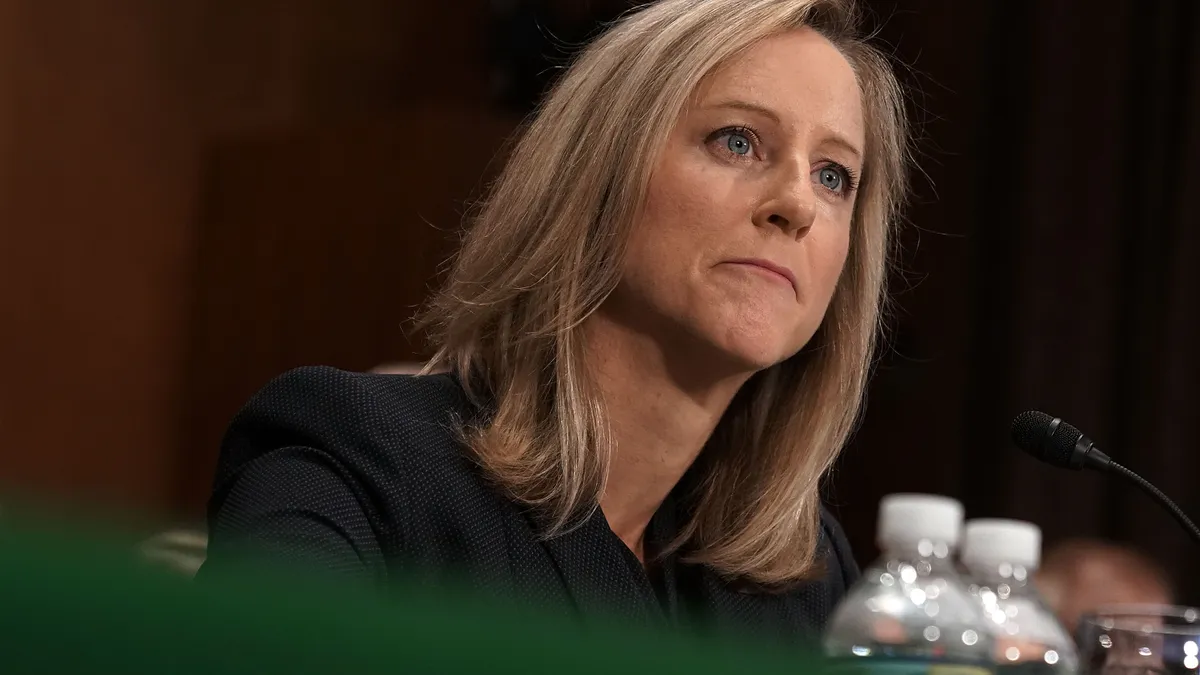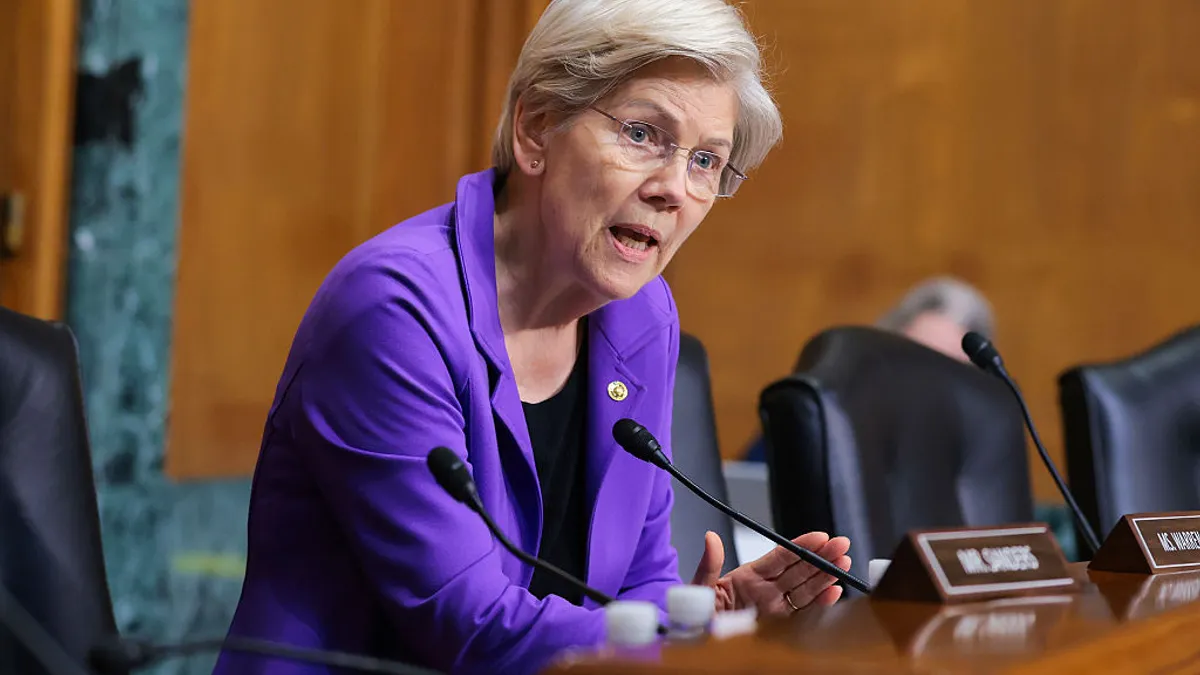Kathy Kraninger, a Trump-era director of the Consumer Financial Protection Bureau (CFPB), has taken a job starting this month as vice president of regulatory affairs with New York City-based cryptocurrency startup Solidus Labs, according to her LinkedIn profile.
In her role, she will build out the company’s regulatory team, and discuss with lawmakers, regulators and incumbent financial institutions how to effectively police the digital asset space, Kraninger told Reuters.
The crypto sphere is becoming an increasingly frequent landing spot for former prominent regulators.
Brian Brooks, who until January served as acting head of the Office of the Comptroller of the Currency (OCC), joined Binance.US as its CEO in May. Brooks, in turn, hired Manny Alvarez, former commissioner of California’s Department of Financial Protection and Innovation, as Binance.US’s chief administrative officer — a role Alvarez was slated to start Thursday.
Brooks’ move may not have been a particular surprise: He worked as Coinbase’s chief legal officer before his OCC stint.
But the space has attracted others. Coinbase in March hired Brett Redfearn to run its capital-markets group. Redfearn until December was director of the Securities and Exchange Commission’s division of trading and markets.
J. Christopher Giancarlo — whose praise of the digital asset space’s innovation earned him the nickname “Crypto Dad” while he led the Commodity Futures Trading Commission (CFTC) — co-founded the Digital Dollar Project after leaving the agency and joined the board of crypto lender BlockFi in April.
Regulatory hurdles
Kraninger and other crypto regulatory liaisons may have their work cut out for them in their effort to assure officials of their good intentions.
Securities regulators this week in two states — New Jersey and Texas — filed cease-and-desist orders against BlockFi over the company’s interest-bearing accounts. A third — Alabama — asked the company to show why it should not be required to stop selling unregistered securities in the state. BlockFi contends the accounts are not securities.
Elsewhere in digital assets, the President’s Working Group on Financial Markets convened Monday to discuss stablecoins’ rapid growth and risks to users. At the meeting, Treasury Secretary Janet Yellen "underscored the need to act quickly to ensure there is an appropriate U.S. regulatory framework in place," according to a press release.
Sen. Elizabeth Warren, D-MA, echoed that concern Monday on a call marking the CFPB’s 10th anniversary, American Banker reported. “We’re seeing an essentially unregulated market grow by the day, and financial scams are growing with it,” she said. “Crypto is an area that I think all of our financial regulators are going to need to work together to address.”
One hurdle may be that regulation of the space is not consolidated. Comments and actions by the SEC and CFTC indicate regulators may be leaning toward considering some established crypto assets such as Bitcoin and Ether as commodities rather than securities. Newer denominations, however, may fall in a gray area. And a handful of other crypto platforms — Anchorage, Protego Trust Co. and Paxos — have received conditional approval for a national trust bank charter from the OCC.
Solidus Labs, founded in 2017 by former Goldman Sachs employees, has built software to monitor crypto markets and help clients such as the crypto exchange Bittrex screen for manipulation, bad actors and meet compliance obligations, according to Reuters.
"We've had overwhelming interest from regulatory entities globally," Solidus Labs CEO Asaf Meir told Reuters. "We needed someone who brings in the right experience.”
Lawmaker frustration
Kraninger served as director of the CFPB from December 2018 to January 2021. Before that, she worked in the Office of Management and Budget, the Department of Homeland Security and the Transportation Department.
During her CFPB tenure, Kraninger did not endear herself to Democratic lawmakers. Some of that enmity may have stemmed from an apparent turnabout in her stance on the bureau’s independence. During her 2018 nomination process, Kraninger said, "the ultimate question of the constitutionality of the Bureau's structure is one for Congress or the courts to resolve." A year later, in a brief persuading the Supreme Court to take up the issue, Solicitor General Noel Francisco wrote, "the Director has reconsidered that position." The court in June 2020 sided with Francisco, ruling the president could fire the CFPB chief at will — a change in policy.
House Democrats in 2019 leveled a blistering 333-page report at Kraninger, accusing her of going against the advice of her employees and "leaving consumers high and dry" because the CFPB didn’t require remediation during a number of settlements.
"If the consumer bureau can't get relief for consumers who have been harmed — and you admit they've been harmed — then what are you doing?" Rep. Carolyn Maloney, D-NY, asked Kraninger during a hearing.
Other lawmakers found her testimony less than informative.
"I will tell you that Director Kraninger is very, very good at not answering questions," Sen. Jon Tester, D-MT, said at a hearing last year. "By the way, that’s not a good quality. ... These hearings with Director Kraninger have been a total waste of time."






















